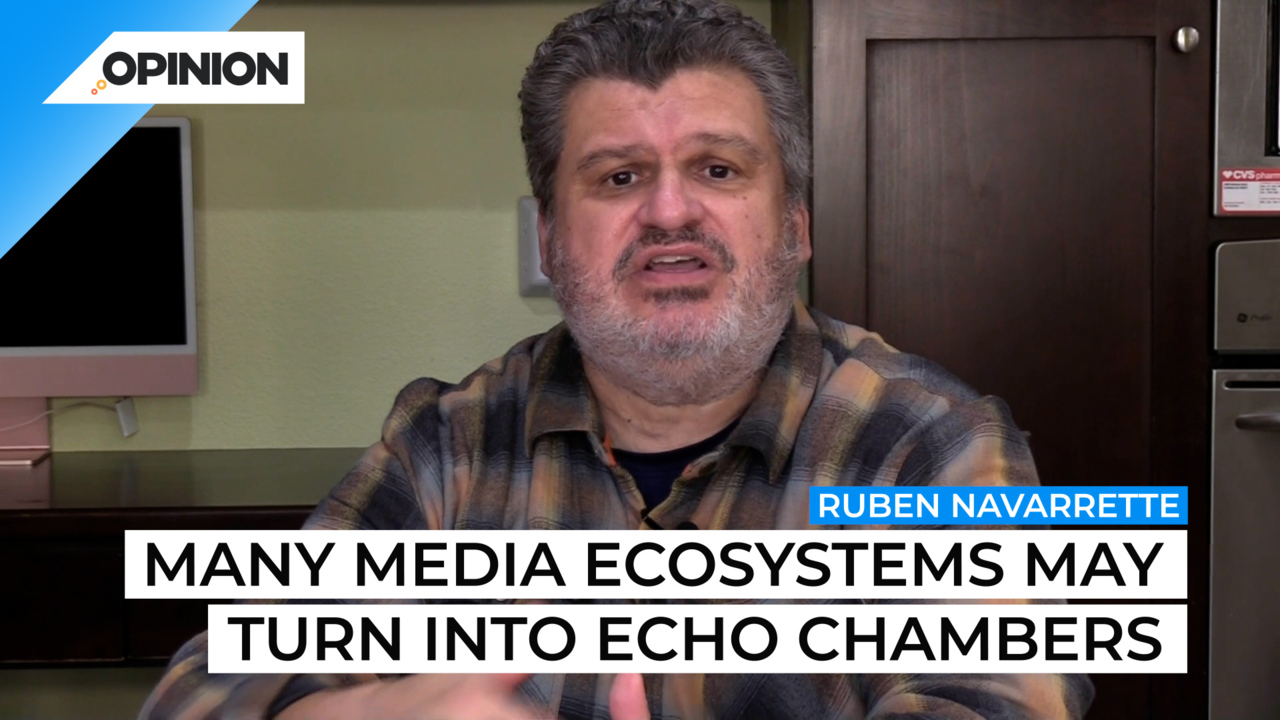
Commentary
-
Our commentary partners will help you reach your own conclusions on complex topics.
I predict that in the new year, the media revolution may not be televised, but it will be available on demand for digital viewing on the electronic device of your choosing.
As you probably have noticed, many of the traditional forms of media that those of us in Generation X, now between the ages of 42 and 57, grew up consuming during the 1970s and 80s are withering. The competition for eyeballs and eardrums has never been stiffer. And newspapers, magazines, radio stations and television networks simply can’t keep up.
Many of them are scaling back, coming apart or shutting down altogether. The smart ones, however, are going digital. Media has become a highly personalized product. Americans don’t just get our news on demand. That’s a given. We can now arrange to get the kind of news and only the kind of news that interests us.
If I have zero interest in stories about science, I can choose to fashion a newsletter that gives me tons of information, comes directly to me, not an ounce of what I get will be about science.
To quote an advertising slogan for my youth, “Hold the pickles, hold the lettuce, special orders don’t upset us.”
If we can get a hamburger whenever we want, exactly the way we want it, why can’t we get our media that way? Well, today of course we can. These days, Americans have more choices than ever, and many of them have chosen not to believe or trust big media.
I predict that in 2023 this trend will continue to intensify. Traditional media outlets will find themselves more and more on the defensive, having to prove that they’re fair and not biased in one direction or the other. Still, the public will become increasingly suspicious that the national conversation is being shaped by people who don’t think like them or see the world the way they do.
Meanwhile, the new media labels will expand their offerings, and new infotainment brands will spring up. Bloggers, columnist, media entrepreneurs will continue to build their personal media ecosystems without needing or craving validation from the stalwarts of big media.
The good news is that media consumers will continue to have more and more choices, and independent thought is likely to thrive. After all, less corporate influence should result in greater independence.
The bad news is that many of these ecosystems may turn into echo chambers. So if you go into an ideological cavern to be around like minded people, your experience is going to be stifling and one dimensional.
Either way, there’s no going back. Gone are the days of media monopolies and those who run media companies trying to tell us not just what happened, but what to think about what happened.
As a child in the 1970s, I grew up watching a color television set with just three channels, one for each major TV network. Then came cable and satellite and streaming. And well you get the picture.
In the 1990s, when I began my career as a journalist, many U.S. cities had just one newspaper. My teenagers don’t even know what a newspaper feels like in their hands. In the 2020s, the major media companies have gone from trying to control and shape and manipulate new media to more often being overrun and outplayed by them. They’re still playing catch up. These media trends are unsettling. Change usually is, but they’re likely to be positive, especially if they lure consumers away from the extremes and toward the place where we all need to be: the center. If that happens, I predict we Americans will be better off.
-
Trump is leaving a huge mess only liberals can clean up
President Donald Trump wasted no time sparking new controversies once he returned to office, issuing broad pardons to convicted Jan. 6 criminals immediately after his inauguration. Since then, he’s sought to unilaterally overturn constitutional laws and seize new executive powers. He’s also purged the federal government of key programs and personnel, and isolated the United… -
Trump’s misguided war on DEI
On his first day back in the White House, emboldened by a 2023 Supreme Court ruling banning affirmative action in college admissions, President Trump signed an executive order titled “Ending Radical and Wasteful Government DEI Programs and Preferencing.” The order claims that diversity, equity, and inclusion (DEI) initiatives have led to “immense” public waste and discrimination. Trump… -
With President Trump, learn to take the good with the bad
President Donald Trump’s second term has already been defined by sharp polarization, with Democrats warning of a constitutional crisis and the destruction of vital federal programs even as Republicans celebrate progress on key initiatives like ending DEI nationwide. Amidst the division, those voters who find themselves agreeing with some of Trump’s actions while disagreeing with… -
Trump’s tariff leverage stems from Mexico’s fears at home
President Donald Trump’s proposed 25% tariffs on Mexico have been delayed by a month after Mexican President Claudia Sheinbaum agreed to deploy an additional 10,000 National Guard members to the U.S.-Mexico border to “prevent the trafficking of drugs, particularly fentanyl.” Trump said, however, that Mexico’s efforts to stop illegal drugs were not enough to keep… -
Trump’s crackdown on migrants shows his tyranny
In final months of the Biden administration, migrant crossings over the U.S.-Mexico border had reached their lowest levels since 2020. However, President Donald Trump pledged to make cracking down on immigration a key issue in his second term. He already enacted a range of new executive policies intended to ramp up arrests and deportations of…
Latest Opinions
-
 Getty Images
Getty Images
US changes course, pauses tariffs for all USMCA goods until April 2
-
 AP Images
AP Images
More than half of global fossil fuel-related CO2 emissions linked to 36 companies
-
 Getty Images
Getty Images
Zelenskyy foes met with Trump camp, oppose wartime election: Report
-
 Getty Images
Getty Images
Trump preparing to sign executive order to begin closing Department of Education
-
 Getty Images
Getty Images
Fake bomb threat called during Pro-Palestinian protest at Barnard College
Popular Opinions
-
In addition to the facts, we believe it’s vital to hear perspectives from all sides of the political spectrum.






